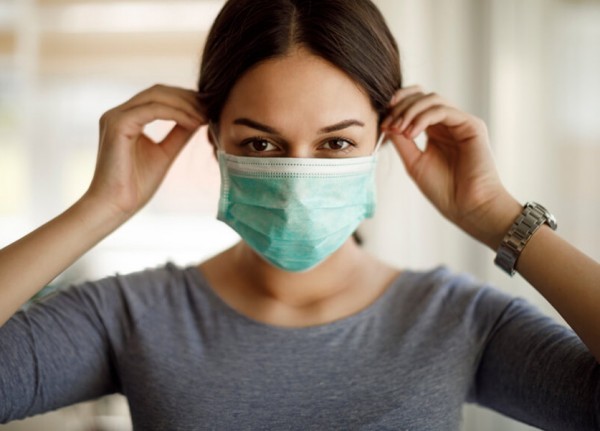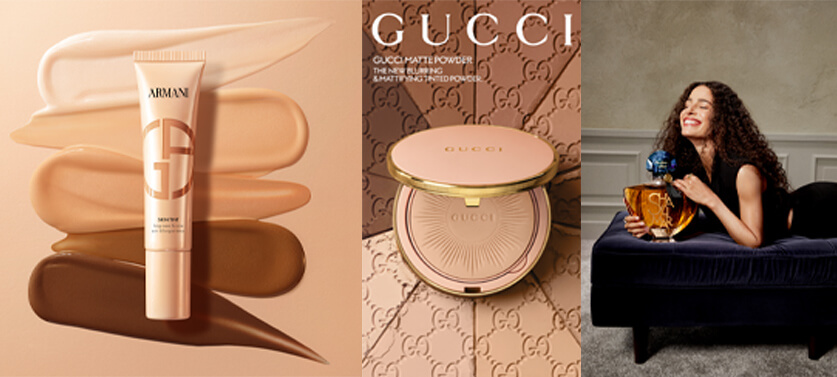BEAUTY
How to limit face mask side effects on the skin?
Two skin experts gave us some useful tips
Justine Feutry / Madame Figaro
9-September-2020

Wearing the facemask for long consecutive hours will eventually show signs of intolerance on the skin. We discussed the matter with two experts in order to know how to limit the damage and support this essential protection against covid-19.
Redness for some, blemishes for others ... Since the beginning of the pandemic, many people have been forced to wear facemasks all day long and noticed these setbacks, especially hospital staff. A large part of the population has adopted this recommended protection to limit the spread of Covid-19, in their workplace, on the streets where it is sometimes mandatory. As your skin is not used to be covered like this, it becomes prone to different reactions. Gautier Doat, doctor at the Ducray medical department, and Marie Depoulain, facialist, told us what to do to make facemasks less damaging to the skin.
Skin confinement
Many people share the inconvenience of wearing a facemask on social media, without questioning its usefulness. Beside the respiratory discomfort that some feel and the heat, the reactions of the skin after wearing a facemask are highlighted; from redness at the top of the cheekbones to small pimples on the cheeks.
"Irritation, friction, bacterial proliferation due to the moist heat produced by breathing ... are all consequences of this new habit that we are in the process of adopting", analyzes Marie Depoulain.
As for Gauthier Doat, we must distinguish a cause and a consequence from another: “even if there are few studies to tackle this issue, however, the feedback is that we are experiencing irritation on contact points.” This includes the area under the eyes, the bridge of the nose, the chin and behind the ears, where you hang the facemask’s elastics.
“They remain mild irritations like hypersensitivity, redness, itching or dry skin. We are not talking about allergies but irritants,” insists the doctor. This “skin confinement” causes an increase of skin problems, as result of humidity and maceration. “Pre-existing problems such as acne, rosacea or seborrheic dermatitis can thus increase." Not to mention stress and anxiety linked to this unprecedented situation, which also worsen the situation.
Ducray expert highlights a possible skin problem that might appear as result of wearing the facemask repeatedly: having eczema due to the facemask composition.
Surgical or cloth masks?
Can we limit these side effects on the skin by choosing the right type of facemask?
“If they meet protection standards, cotton masks are best for reactive skin,” answers Gautier Doat.
However, several factors can also change the situation. “When you have to change your facemask after four hours maximum, take the opportunity to let your skin breathe a little. You can also spray a little of thermal water on it, then let it dry well before wearing it back."
For those who cannot tolerate rubber bands of the facemask, they can always try a knot at the back of the head if possible.
Protection creams
Another way to prevent irritation: skin care creams. Your beauty routine can be very useful in this regard. “According to your skin type, you have to protect your skin from this sudden change,” warns the facialist. “I recommend applying lighter skin care texture for oily skin, when wearing a facemask. While sensitive skin must apply barrier creams offering protection for their fragile skin.”
The doctor recommends applying a moisturizing cream, in the morning and at night, as it is recommended to apply it 30 mins to an hour before wearing your facemask, so that your skin can absorb the product properly.
“You can also apply a protective cream, especially at pressure points. As well as a repairing cream where it shows lesions.”
How about products with SPF? “they tend to amplify the pores, due to their oily texture. Therefore, you can pass without applying it under the facemask.” However, you must protect the uncovered part of your face with SPF.
Light makeup
What about makeup that some don't intend to give up? The two experts recommend not to overuse it, they also insist on the importance of removing make-up.
“I am not a fan of micellar water and do not recommend it during this time,” explains Marie Depoulain. Indeed, this darling product has a reputation for drying out your skin.
“In case you want to use it, you must pair it with a moisturizing treatment,” suggests Gautier Doat. Anyways, it is important to clean your face daily with gentle care such as washing oils, and always dry your face well by patting the skin, without rubbing. " Our skin will only experience this confinement through a facemask to protect us from everything around us.






